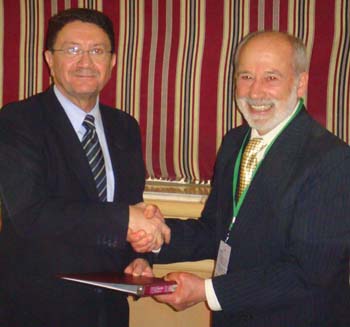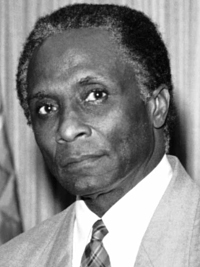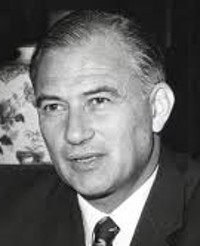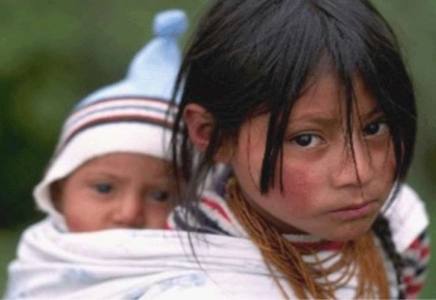

Dr. Taleb Rifai is the new chairman of the IIPT International Advisory Board
“Whatever our business in life may be, let us always remember that our core business is, and will always be, to make this world a better place. Peace is definitely an ingredient when making this world a better place. These words coming from a citizen of the Kingdom of Jordan, it means there is a natural connection between peace and tourism.
Dr. Taleb Rifai, UNWTO Secretary-General from 2009 through 2017 was the head of the UN Specialized Agency in charge of Tourism, known as the World Tourism Organization.
The former UNWTO Secretary-General has been a man of peace, building a bridge of friendships and integrity for our largest industry in the world, the Travel and Tourism Industry.
It’s therefore not surprising and highly appropriate for this respected global tourism leader with a legacy like no one else to be named the chairman of the International Advisory Board at the International Institute for Peace Through Tourism (IIPT).
He succeeds Dr. Noel Brown who becomes Chairman Emeritus and before Dr. Brown, Knut Hammarskjold, former Director General of IATA and nephew of UN Secretary-General, Dag Hammarskjold.
In making the announcement, IIPT Founder and President, Louis D’Amore stated: “IIPT is most honored that Dr. Rifai has accepted the role as Chairman of the IIPT International Advisory Board. His acceptance enhances the stature of IIPT in the International Tourism Community and IIPT’s ability to make further progress towards its vision of travel and tourism becoming the world’s first global peace industry and the belief that every traveler is potentially an Ambassador for Peace.”
Dr. Rifai stated: “I have been a supporter of IIPT and its vision since participating in the IIPT Amman Global Summit nearly 20 years ago as Jordan Minister of Communication. As I have often stated as Secretary General of UNWTO – global solidarity is based on a common aspiration for peace – and ‘travel is the language of peace.’ I also believe and have often stated that the ‘core business of tourism is to make the world a better place.’ As Chairman of the IIPT International Advisory Board, I will be in a position to continue contributing towards these ends.”
Dr. Rifai earned a B.S. in Architectural Engineering from the University of Cairo; Masters degree in Engineering and Architecture from the Illinois Institute of Technology (IIT) and a PhD in Urban Design and Regional Planning from the University of Pennsylvania. From 1999 to 2003, he served in several ministerial portfolios in the Government of Jordan as Minister of Planning and International Cooperation; Minister of Information; and Minister of Tourism and Antiquity. He subsequently was Assistant Director-General of the International Labor Organization (ILO) following which he served as Deputy Secretary General of the World Tourism Organization prior to being elected as Secretary-General in 2009 and elected for a second four-year term by the 20th session of the UNWTO General Assembly co-hosted by Zambia and Zimbabwe.
During his eight years as UNWTO Secretary-General, Dr. Rifai changed the UNWTO and many say he raised the bar of the UN agency to a new high, building a legacy for himself and the UNWTO like none of his predecessors had.
In his final speech, he addressed not his legacy, but the legacy of the International Year of Sustainable Tourism for Development. This is Dr. Rifai’s final address as UNWTO Secretary-General:
https://www.eturbonews.com/174096/taleb-rifais-final-words-unwto-secretary-general-make-world-better-place
Dr. Noel Brown to be Chairman Emeritus

Dr. Noel Brown has been an Environmental Diplomat for decades. In 1972 he collaborated with Maurice Strong in organizing the first UN Conference on the Environment in Stockholm, Sweden. Following the conference he continued collaborating with Maurice Strong in establishing the United Nations Environment Program (UNEP) in Nairobi, Kenya and subsequently became Director, UNEP North America in New York where he played a key role in the historic “Earth Summit” in Rio 1992 and initiated numerous innovations in the service of the earth’s environment and sustainable development. Following his retirement from UNEP he founded “Friends of the United Nations” where he continued to be active in advancing the goals of the United Nations for peace, environmental protection and sustainable development.
Knut Hammarskjold

Knut Hammarskjold was the first Chairman of IIPT’s International Advisory Board. He served in Montreal for 18 years as the second Executive Director of the International Air Transport Association (IATA). He was the nephew of United Nations Secretary-General Dag Hammarskjold, who was killed in a plane crash in 1961 while traveling on a peace mission to the Congo. Knut Hammarskjold, considered his distinguished uncle as a second father. An IIPT International Peace Park has been dedicated in Ndola, Zambia, site of the crash. Knut led IATA through a period of profound change during a period of turbulence and transformation and a period also marked by a rise in hijackings. After leaving IATA, he was appointed head of an independent commission regarding the future of the United Nations Educational, Scientific and Cultural Organization (UNESCO).
The International Institute for Peace through Tourism (IIPT) is a not for profit organization dedicated to fostering travel and tourism initiatives that contribute to international understanding, cooperation among nations, an improved quality of environment, cultural enhancement and the preservation of heritage, poverty reduction, reconciliation and healing wounds of conflicts; and through these initiatives, helping to bring about a peaceful and sustainable world. It is founded on a vision of the world’s largest industry, travel and tourism – becoming the world’s first global peace industry; and the belief that every traveler is potentially an “Ambassador for Peace.”
IIPT is a member of the International Coalition of Tourism Partners (ICTP) www.ictp.travel

Why responsible tourists should visit Honduras, El Salvador, Dominican Republic and Guatemala
Responsible tourists should look to travel to and support Honduras, El Salvador, Dominican Republic and Guatemala through tourism. Responsible tourists should check carefully when supporting other Caribbean and Latin American Countries. This message becomes timely with the start of the WTTC (World Travel and Tourism Summit) about to start in Buenos Aires, Argentina.
Except for Honduras, El Salvador, Dominican Republic and Guatemala, other Latin American and Caribbean countries are struggling to make progress against child marriage compared with countries in South Asia, according to a UNICEF report.
While other parts of the world have reduced the incidence of child marriage, “this has not been the case in our region, where one out of four women are being married before 18 years old,” says local UNICEF head Maria Cristina Perceval.
Latin America and the Caribbean has become the only region in the world where child marriages have not decreased significantly over the past decade, according to a recent report by the U.N. children’s agency (UNICEF).
“We are observing a real progress in other parts of the world to protect girls from child marriage,” stated in Panama City Maria Cristina Perceval, chief of Unicef for Latin America and the Caribbean. “However, this has not been the case in our region, where one out of four women are being married before 18 years old.”
As a result, these girls do not benefit from the same life opportunities in the medium and long term, with a higher risk of sexual violence, early pregnancies, dropping off school, in addition with the social exclusion from their peers, added Perceval.
Only four countries in the region have banned child marriage, with Honduras, El Salvador, Dominican Republic and Guatemala.
In February, another Unicef report warned that there had been insufficient progress in reducing high teenage pregnancy rates in Latin America and the Caribbean: although overall teenage pregnancy rates “dropped slightly” over the past three decades, the region has the second-highest rate globally.
The total number of girls married in childhood stands at 12 million per year and without public policies properly addressing the issue, more than 150 million additional girls will marry before their 18th birthday by 2030, found the report.
Globally, about one in six adolescent girls (aged 15 to 19) are currently married or in a union. West and Central Africa has the highest proportion of married adolescents (27 percent), followed by Eastern and Southern Africa (20 percent) and the Middle East and North Africa (13 percent). Latin America ranks fourth with 11 percent of the total of adolescent girls.
According to UNICEF, child marriages and early unions in the region are associated with the high rate of teenage pregnancies, the second in the world, and the risk of sexual violence, in addition to gender inequality.
Factors to which join many others such as poverty, social norms, gender roles and relationships, beliefs and gaps in national legislation.
‘In the region, the equality of girls is limited by the impact of early motherhood, violence and limited life opportunities. We cannot keep our eyes closed to a lost potential and forgotten rights ‘, hence the urgent call to put an end to these practices said Perceval.
